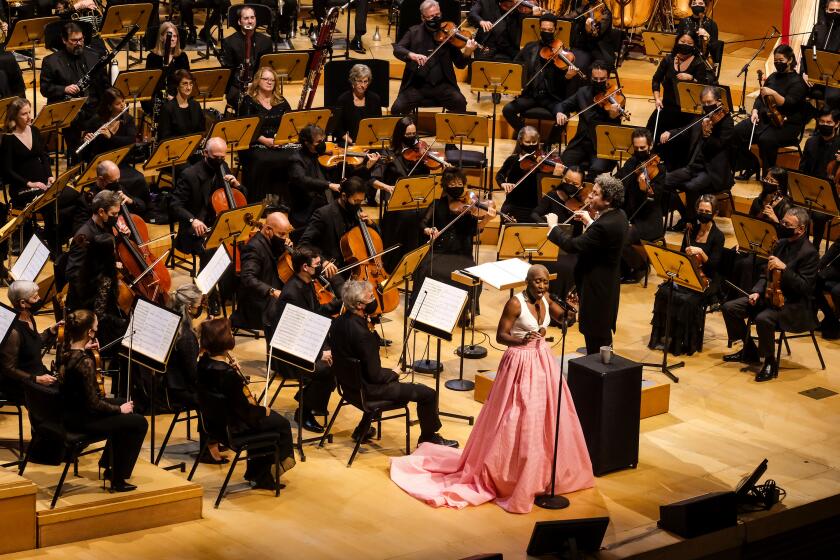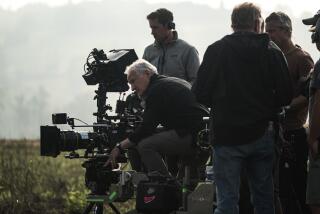Thomas Mann’s magic piano, heart of 1940s L.A. intellectual life, comes home
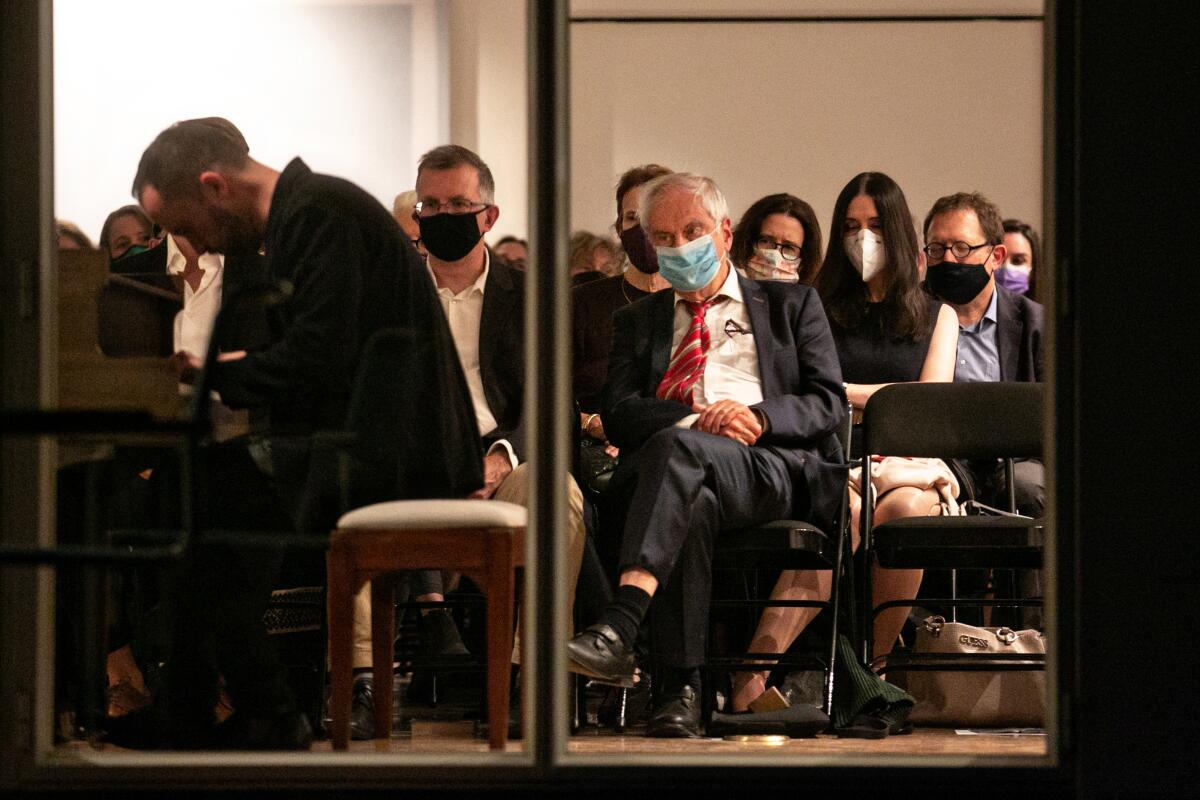
Among the disappointments of Colm Toíbín’s new novel, “The Magician,” which imagines the life of Thomas Mann, is any real sense of the richly extravagant artistic life of the émigré community in 1940s Los Angeles. The German Nobel Prize laureate was at the time the most celebrated writer in L.A. and his house in Brentwood a center of intellectual life, full of exceptional figures. One of them that Toíbín leaves out stood at the very center of these gatherings in the house. What it witnessed could, itself, be material for a novel.
It’s Mann’s piano, which spent the last 70 years in Europe, and it has come home. Donated by his favorite grandson, Frido Mann, the piano now sits in the exact place where it had been between 1944 and 1951, in a family room outside of Mann’s study in the Thomas Mann House. The writer needed but a few steps to reach the instrument and bang away on the “Tristan” chord to get in the proper mood while writing “Doctor Faustus,” Mann’s controversial late novel about the role of music and art in society.
It was here, at this piano in this spot, that the émigré philosopher and musical theoretician Theodor Adorno taught Mann his fanciful ideas of Beethoven’s last piano sonata, Opus 111, which forms the basis of Chapter 8 in “Doctor Faustus.” It was here at this spot that pianist Igor Levit inaugurated the newly restored piano’s homecoming with a revelatory performance of Beethoven’s sonata Saturday as the highlight of an event that included a discussion with Frido Mann, Levit and German minister of state Michelle Müntefering, moderated by New Yorker music critic Alex Ross.
To this day, we cannot escape Mann connections with our musical landscape. Mann’s youngest son and Frido’s father, Michael, was a violist in the San Francisco Symphony at the time he obtained the piano for his father. Stravinsky wrote his solo viola “Elegy” for him. It happened to be the piece to open this year’s Ojai Music Festival as an apt reminder of 18 sorrowful pandemic months. It also just happens that Deutsche Grammophon last spring released for the first time on CD Michael Mann’s stunning recordings from the 1950s of viola sonatas by Ernst Krenek and Arthur Honegger and pieces by Darius Milhaud. Krenek and Milhaud were more than likely visitors to the Mann House.
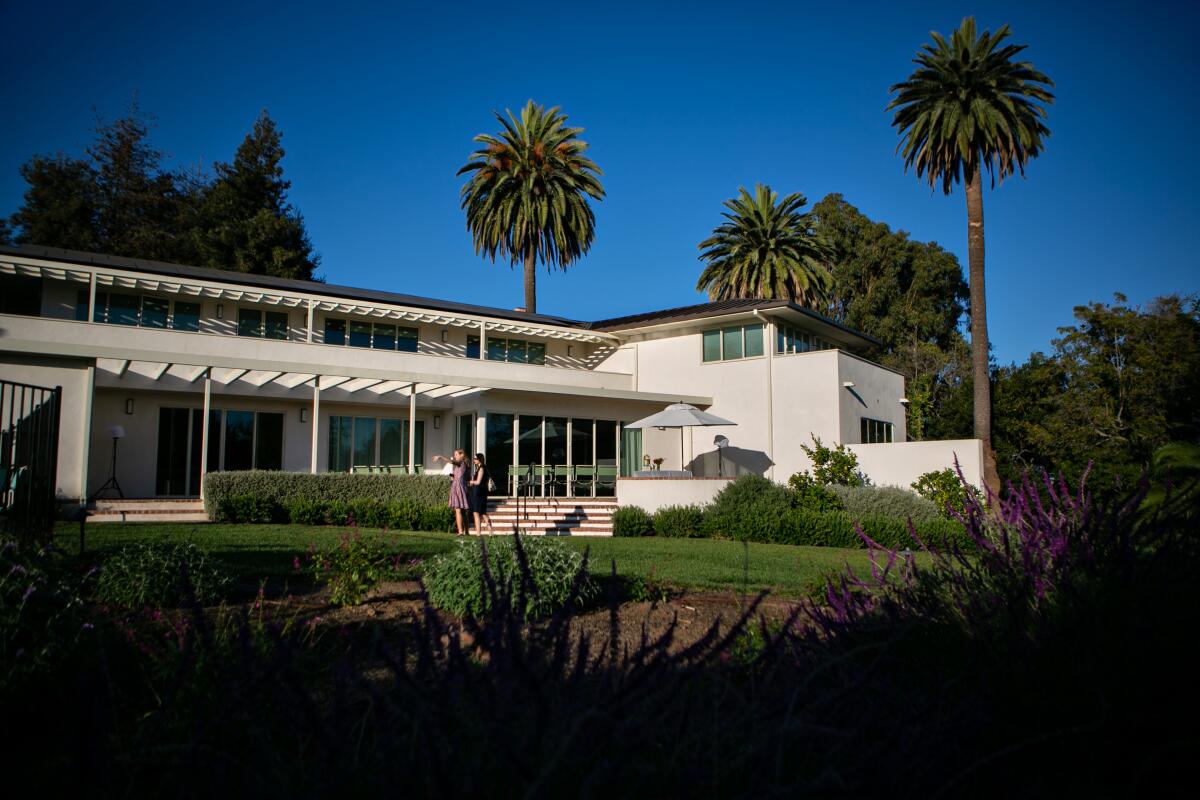
The day before the Mann House performance, the Pasadena Symphony gave its first public concert in 21 months. The orchestra’s music director in the 1940s, Richard Lert, and his wife, screenwriter Vicki Baum, were not only close friends of Mann but the ones who unsuccessfully tried to talk an architecturally conservative writer into using a more progressive architect when Mann was planning his now historic house, designed by JR Davidson.
At the same time as the Pasadena concert, Gustavo Dudamel led a performance of Schoenberg’s “Transfigured Night.” The protagonist of “Doctor Faustus” is a fictionalized Schoenberg, who Mann felt betrayed German culture by moving musical language into a more abstract realm in his later works. The composer, in turn, felt betrayed by his friend, Mann, instigating a rift among musical luminaries in L.A. that lasted for decades.
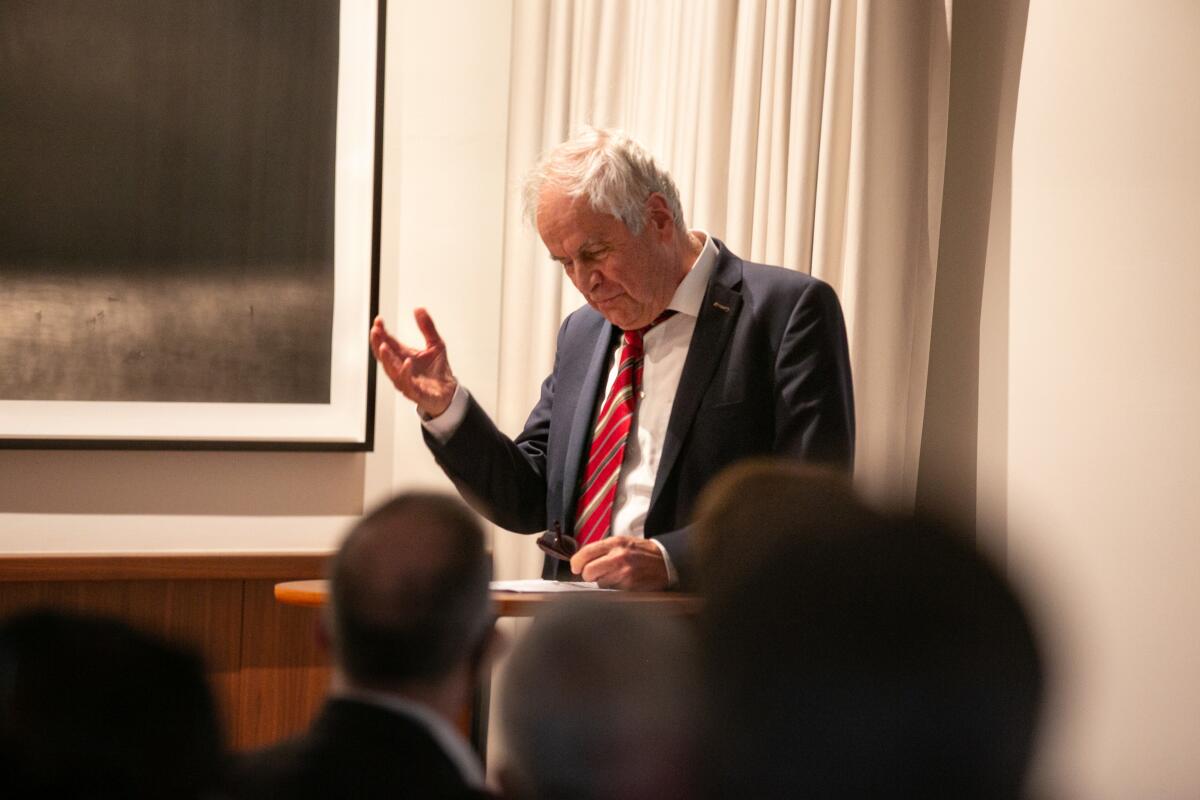
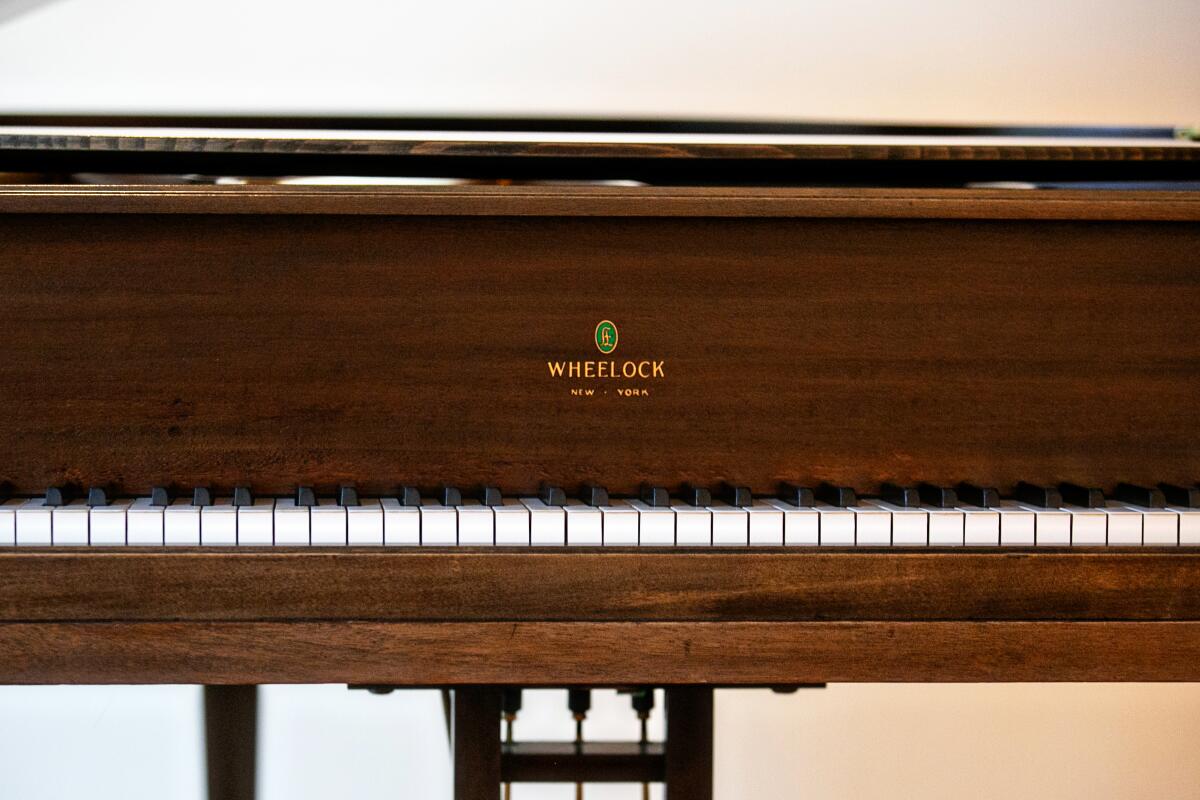
Frido Mann, himself a distinguished writer who was trained as a musician and psychologist, inherited the piano from his grandmother in 1980. It followed him throughout Switzerland, Italy and Germany. He played it daily, and it held memories. Born in 1940, he visited his grandparents often and remembers falling asleep in his bedroom hearing the sounds of music coming from gatherings that might have included Schoenberg, Stravinsky, Bruno Walter, Otto Klemperer, Arthur Rubinstein, Hanns Eisler, Bertolt Brecht and any number of literary and film luminaries with whom the Manns hobnobbed.
I don’t know whether Susan Sontag actually heard this piano being played, but she once told me her obsession with music began as an awestruck teenager visiting Mann in his house.
Frido Mann had other memories about the piano as well. In the piano’s bench, where sheet music would be normally kept, the Manns stored old copies of The Times. Young Frido loved to pull them out and spread the comics over the floor next to the instrument. For him, he said, the piano was like a lost sheep returning home.
The instrument is an unimpressive Wheelock baby grand. Once a popular American piano, known as a poor man’s Steinway, Wheelocks don’t have much of a reputation these days. You can pick one up on the used market for a small fraction of the price of a Steinway. Before the concert I asked Levit what he thought of it. Not much.
If so, either Levit is a magician or “The Magician” built himself L.A.’s first magic castle. Levit’s performances of Opus 111 as well as of Beethoven’s first piano sonata, Opus 2, No. 1, had a power that suffers in attempts to describe it.
With help from a spectacular Cynthia Erivo, the L.A. Phil stages a gala that does not disguise how we’ve been through hell to get back to Disney Hall.
In the discussion with Ross, Levit expressed little concern with all the baggage that attends this piano, fascinating though it may be, and especially not with Adorno’s grand ideas of transformation. For the pianist, Beethoven and all other music is what you make of it at the moment. An outspoken political artist, Levit spoke of his devotion to the struggle against prejudice and what he described as national narrow-mindedness. Of that, an instrument must somehow sound, he asserted, which isn’t all that far from Mann’s romanticizing.
And this, the Wheelock somehow did. Levit simply dumped all of its baggage on the floor, as Frido Mann once had his comic strips. There was little attaining a supposed spiritual dimension in Beethoven, not even in the otherworldly trills at the end of Opus 111, which can sound like the skies opening up. Instead, Levit remained one with his instrument, resounding with phenomenal resonance. Listen to this and then listen to this, he seemed to be saying. The sound was the meaning.
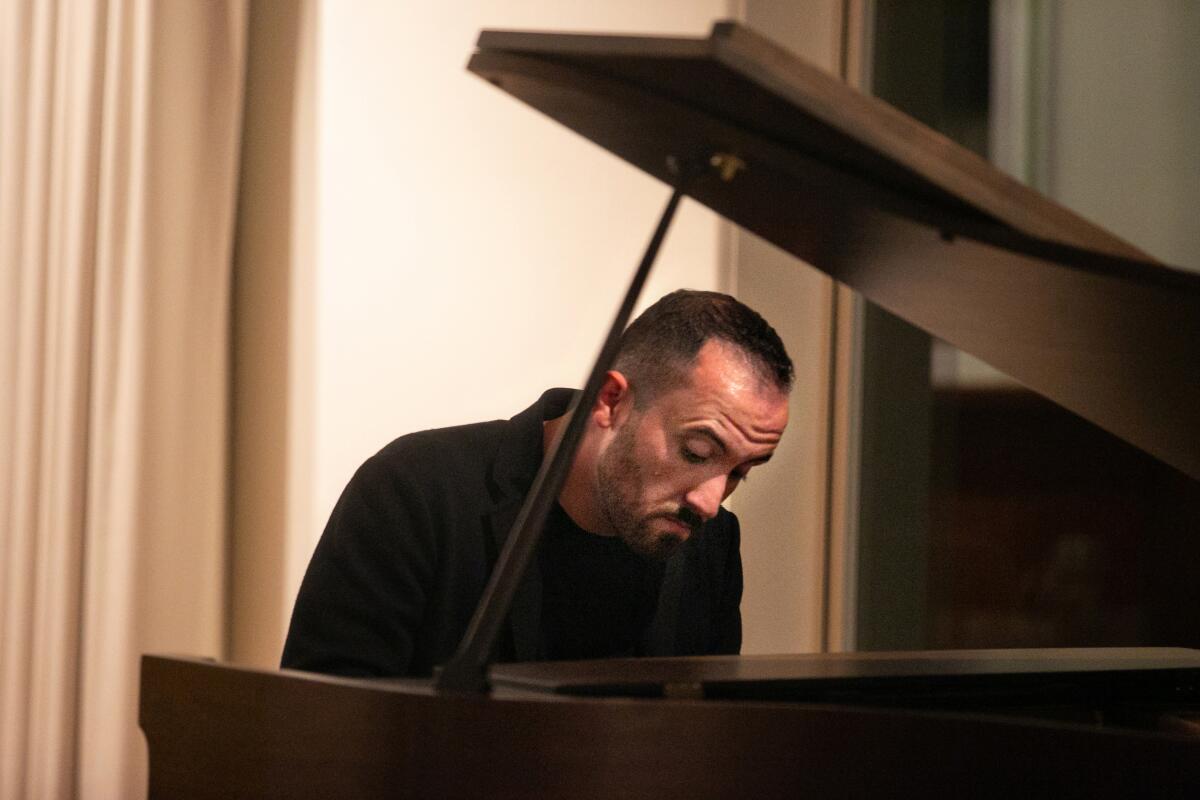
Levit’s technique is supreme. He can apparently do anything on the keyboard. In this case, in this place and on this Wheelock, the Beethoven I thought I knew became a vital and penetrating Beethoven I didn’t know — but now can’t be without. Levit’s Beethoven has become, with this magician’s piano, a means of contemporary confrontation intent to shake, rattle and roll in our own shook, rattled and rolled world.
In introducing Levit, Frido Mann said that he had invited the pianist to inaugurate the piano because he admired his Beethoven recordings as well as his daily streams from his Berlin home during the pandemic. But in presenting Levit with Thomas Mann’s metronome after the performance of Opus 111, Mann noted that he couldn’t have imagined just how radically new this extraordinary performance was.
Much of the talk during the evening was about the threats to democracy, just as it often was in Mann’s time. The German government’s purpose for the Mann House is as a safe space where transatlantic dialogue can produce togetherness. For that we need to listen to one another, Müntefering explained.
To that end, the lost sheep has come home a leviathan, a little piano turned ferocious beast insisting that you listen, or else.
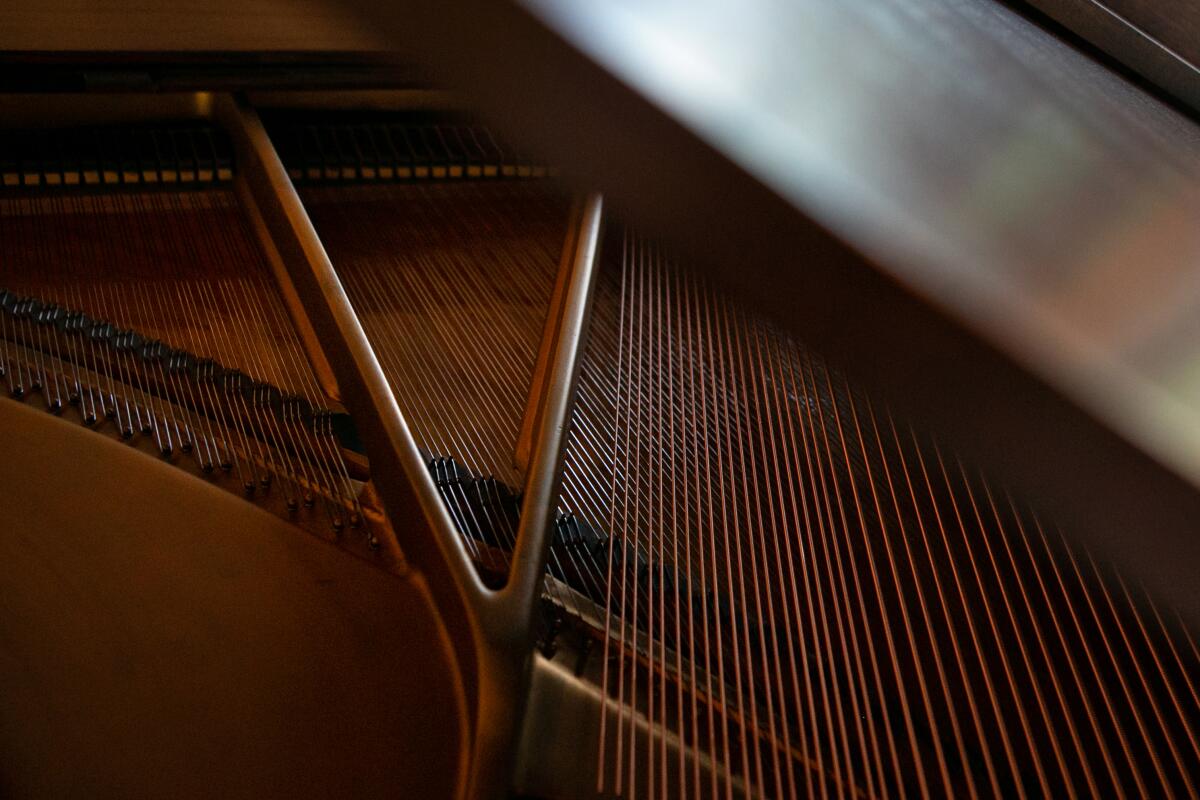
More to Read
The biggest entertainment stories
Get our big stories about Hollywood, film, television, music, arts, culture and more right in your inbox as soon as they publish.
You may occasionally receive promotional content from the Los Angeles Times.
